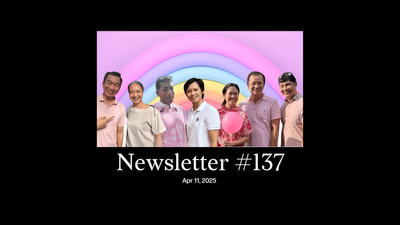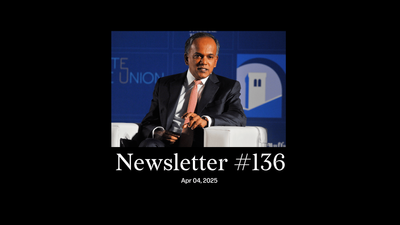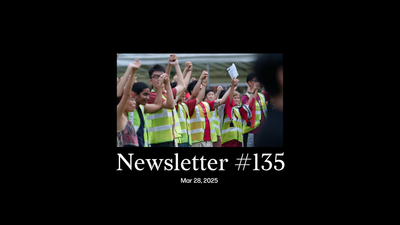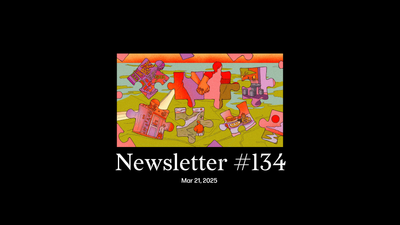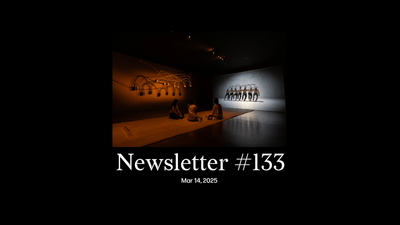Dear reader,
- Jom’s essay of the week: “Taylor Swift and the teenage experience” by Jean Hew, our head of research, is something you must read now to understand the person who is defining “the cultural zeitgeist in a way we’ve perhaps not seen since Michael Jackson or The Beatles.” Swift landed in Singapore a few days ago, and over the next week or so, some 300,000 people from across the region will watch her perform six shows here—boosting our economy, one estimate suggests, by almost S$100m. How did an American singer-songwriter from Pennsylvania touch the hearts of thousands of Singaporean teenagers? Why do her words speak so intimately to your daughters (and some sons)? Read Jean’s piece to find out.
- “Singapore This Week”: In Jom’s weekly digest, we discuss Singapore’s chope-ing of Swift through an exclusive deal, Leong Mun Wai stepping down as the chief of the Progress Singapore Party, why the Ministry of Education’s lessons on Israel and Gaza were problematic, a longitudinal study on parenting behaviours, the life of the late Cultural Medallion winner Suratman Markasan, the closure of Times Bookstores, and Grab’s first-ever quarterly profit.
Like many in my generation, I didn’t pay much attention to Swift’s early rise. And then I watched her documentary “Miss Americana” in 2020, as the world’s borders were closing, and I felt deeply moved, by her disarming honesty, by her effortless role-switching between girl-next-door and global superstar, by the preternatural connectedness between her and her Swifties, by the universality of her message.
I remember listening to N.W.A. in the 1980s, arguably one of the first acts to hint at the notion that rappers are actually also journalists, revealing the most clear-eyed truths about life and language on the street, a mantle since inherited by many others, including Kendrick Lamar.
After I watched “Miss Americana” I couldn’t help feeling that Swift is perhaps our era’s journalist of the heart, at least for millions of girls and women everywhere. Aside from “Anti-Hero” and “Cruel Summer”, her music hasn’t really gripped me. But in some weird way Swift opened my ears and heart to a different kind of musical girlhood in Olivia Rodrigo, a regular on my playlists and when I’m hanging with my nieces, who tell me, in stage whispers and with naughty smiles, that she uses the “f” word. (Our faves: “drivers license”, “favorite crime”, “traitor”, and “vampire”.)
Swift and Rodrigo have helped me connect with them, and I’ll end my shortest newsletter ever because I want you to connect with all the girls and women in your life, as well as teenage you—by reading Jean’s fabulous piece.
Jom baca, jom dengar,
Sudhir Vadaketh
Editor-in-chief, Jom
p.s. to ride Swift-mania, we’re putting the essay outside the paywall for one week. Now’s a good time to share it with your non-subscriber friends who want a sample of Jom before they commit.
If you've enjoyed our newsletters, please scroll to the bottom of this page to sign up to receive them direct in your inbox.


